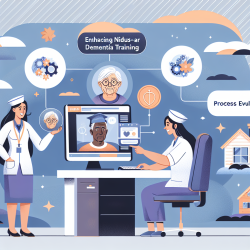Introduction
The landscape of pediatric environmental health research is rapidly evolving, with increased focus on understanding the genetic and environmental factors affecting children's health. The research article "Privacy and Ethics in Pediatric Environmental Health Research—Part I: Genetic and Prenatal Testing" by Celia B. Fisher offers crucial insights into the ethical considerations practitioners must navigate in this domain. This blog post distills key findings from the article to help practitioners improve their skills and encourage further research.
Understanding Privacy Concerns
Privacy is a cornerstone of ethical research, especially in pediatric contexts where the subjects cannot fully consent. The article emphasizes the importance of safeguarding children's privacy when collecting data on health status, genetic makeup, and environmental exposures. Practitioners should ensure that data is de-identified and that long-term data storage is managed with utmost care to prevent unauthorized access.
Informed Consent and Assent
Informed consent is a critical aspect of ethical research, yet it poses unique challenges in pediatric studies. Since minors cannot legally provide consent, parental permission and child assent are required. Practitioners must tailor consent processes to match the cognitive maturity of child participants, ensuring that both children and parents understand the implications of the research. This approach not only protects privacy but also respects the developing autonomy of young participants.
Ethical Challenges in Genetic Testing
Genetic testing in pediatric research introduces additional ethical complexities. The article highlights the potential risks of disclosing genetic information, which can lead to stigmatization or discrimination. Practitioners should carefully consider whether sharing genetic findings with parents is beneficial, particularly when interventions are available to mitigate risks. The principle of beneficence must be balanced with respect for individual privacy, ensuring that the child's best interests are prioritized.
Implications for Practice
- Data Protection: Implement robust data protection measures to safeguard sensitive information.
- Tailored Consent Processes: Develop consent and assent procedures that are age-appropriate and culturally sensitive.
- Ethical Decision-Making: Engage with ethical frameworks to guide decisions on sharing genetic information.
- Continuous Education: Stay informed about evolving ethical standards and integrate them into practice.
Encouraging Further Research
The article underscores the need for ongoing research to refine ethical guidelines and enhance our understanding of environmental health risks. Practitioners are encouraged to contribute to this body of knowledge by conducting studies that prioritize ethical considerations and protect participant rights.
Conclusion
Privacy and ethics are integral to pediatric environmental health research. By incorporating the insights from Fisher's article, practitioners can enhance their practice and contribute to the development of ethical research standards. For those interested in delving deeper into the topic, the original research paper offers a comprehensive exploration of these issues.
To read the original research paper, please follow this link: Privacy and Ethics in Pediatric Environmental Health Research—Part I: Genetic and Prenatal Testing.










